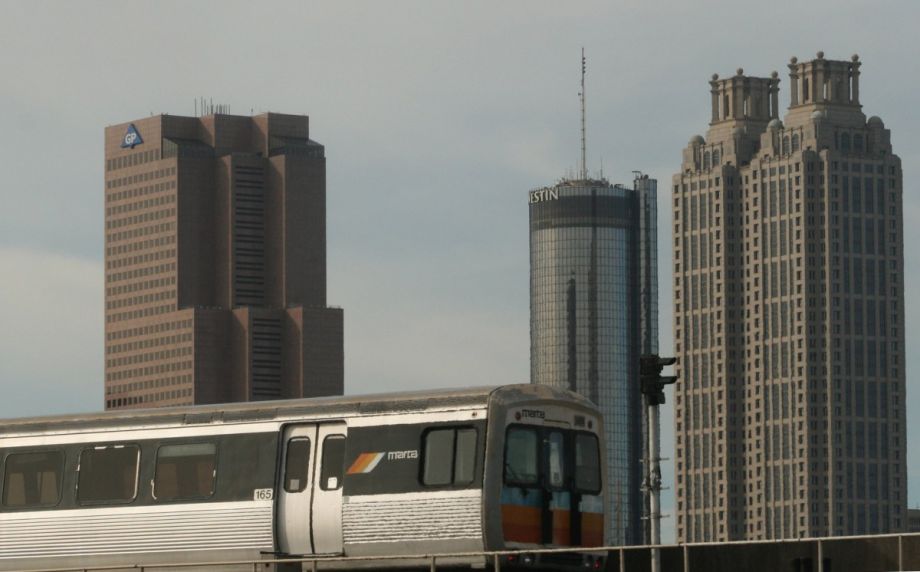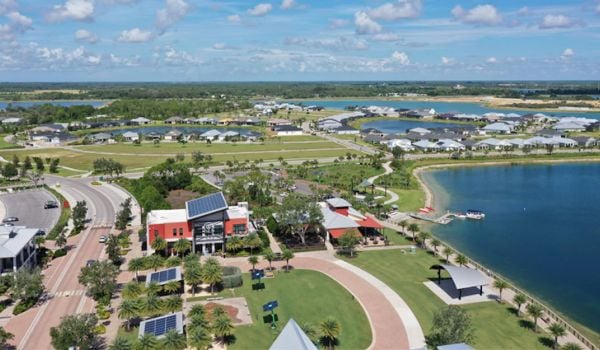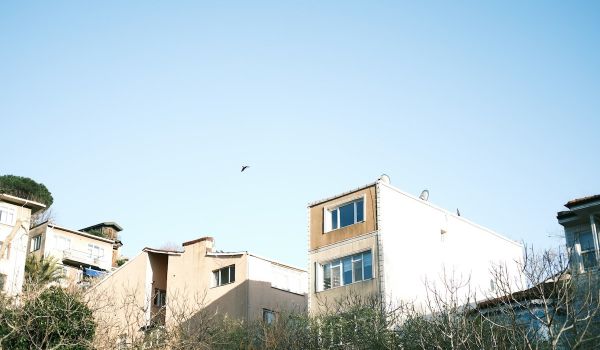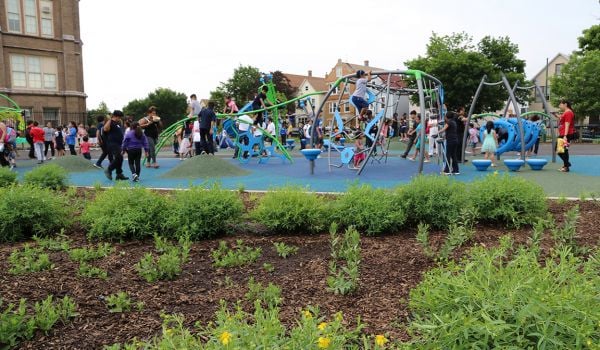Following the lead of Pittsburgh, New Orleans, Berkeley and many other cities considering how to deal with the effects of climate change and other urban stressors, Atlanta has released a resilience strategy in partnership with the Rockefeller Foundation’s 100 Resilient Cities. Like other “RC” cities, Atlanta’s strategy folds disaster mitigation into a deeper examination of the inequalities that have created stark economic and racial divides.
Developing the strategy included input from more than 7,000 residents over the course of 40 public events. It looks first at the city’s north-south racial divide and the steep disparities it reflects, in education, health coverage, poverty and teen birth rates.
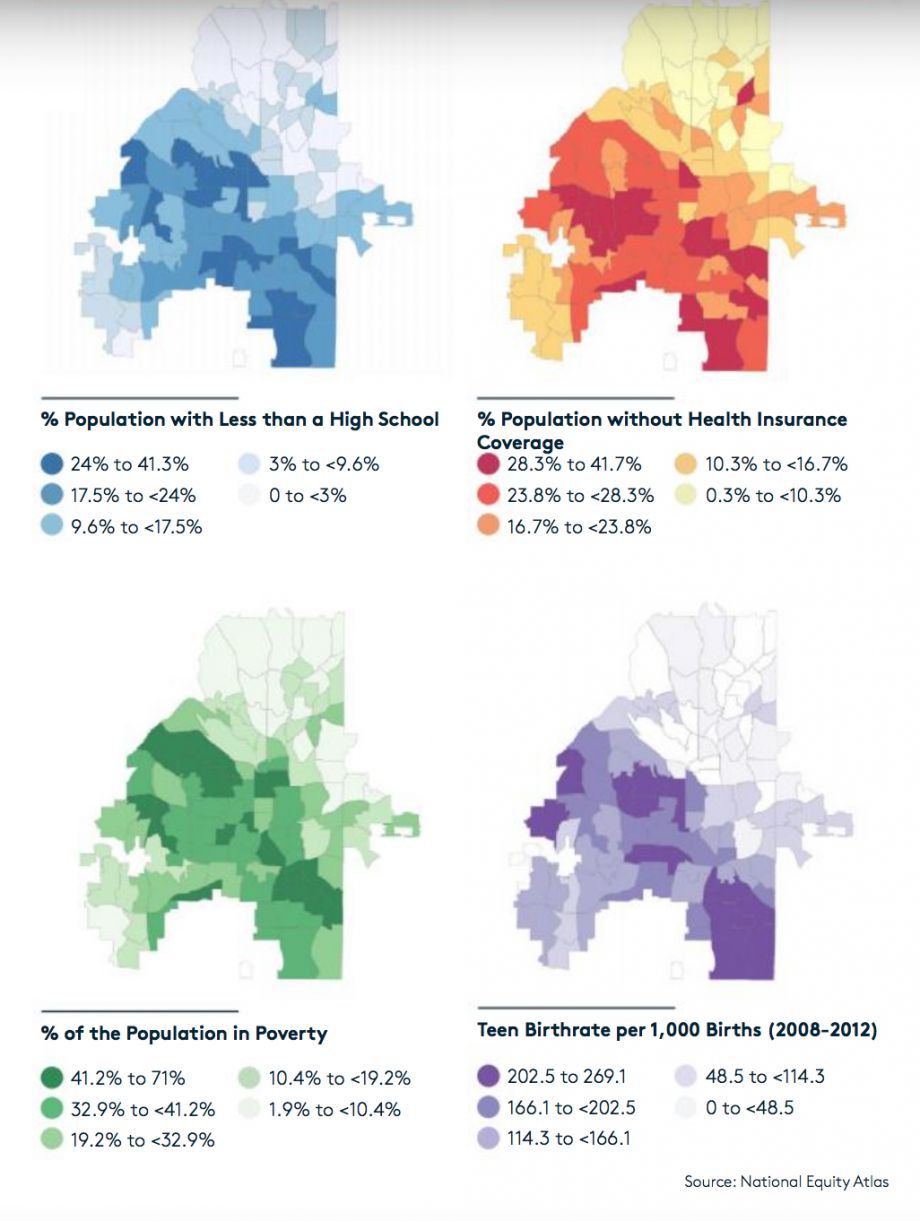
Childhood poverty is particularly troubling. According to the report, roughly 80 percent of black children live in high-poverty communities, compared to roughly 6 percent of white children.
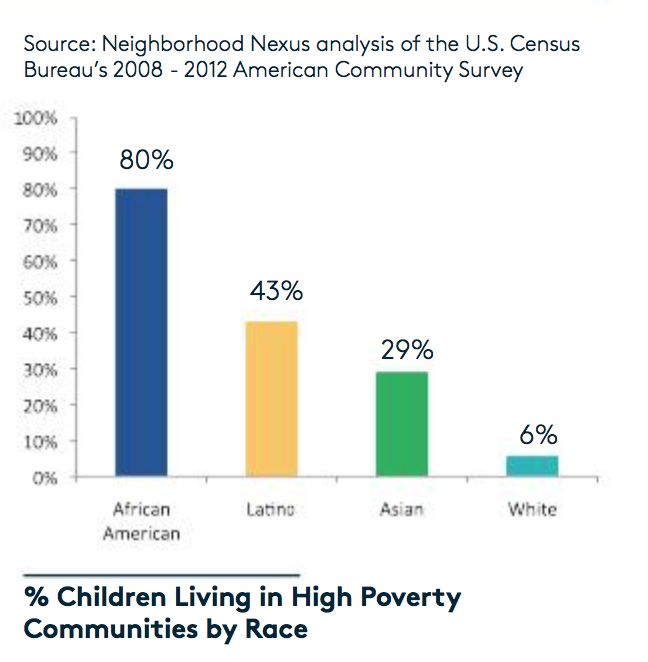
As ThinkProgress reports, those disparities are stressors to the metro region, and will come into even sharper relief as the “shocks” of the 21st century — particularly those related to climate change — hit. 100 Resilient Cities provides funding for member cities to hire chief resilience officers, who help identify those stressors and shocks, and for Atlanta, the latter could include flooding, heat waves and infrastructure failure.
Atlanta’s new strategy is organized around four “visions” titled “Preserve and Celebrate Who We Are,” “Enable All Metro Atlantans to Prosper,” “Build Our Future City Today,” and “Design Our Systems to Reflect Our Values.” Under those four themes, the city lists roughly 55 short-term and long-term actions, some of them broad — i.e., “Becoming a National Leader in Addressing Structural Racism” — while some are more specific policy goals, with dates attached — like building up Atlanta’s arts and culture industry to be the fastest growing by 2025. Other notable goals include supporting Georgia’s universal pre-K program by reducing the number of children on pre-K waiting lists in high-poverty areas; expanding the capacity of workforce re-entry programs for previously incarcerated young adults by at least 25 percent; and increasing access to permanent housing for the homeless by 2020.As Jen Kinney wrote for Next City in 2015, New Orleans’ resilience strategy met some media backlash for its perceived policy jargon and bromide, and the same could easily be said about Atlanta’s heavy document, especially because it’s a “road map,” rather than any kind of binding policy. What’s more, as ThinkProgress points out, municipal elections on Tuesday will put a new face in the mayor’s seat. Still, 100 Resilient Cities claims that all the candidates vying for that seat have made assurances that they will work to achieve the document’s goals. What’s more, a new planning tome for Atlanta, which was released in September and addresses a staggering amount of projected growth over the next 20 years, contains many suggestions that align with the resilience strategy.
“We are proud to release the Atlanta Resilience Strategy, which will help guide the city of Atlanta in its efforts to create more socially responsible policies and programs aimed at protecting the environment, advancing our infrastructure and driving our economy,” Mayor Kasim Reed said in a press release. “Resilient Atlanta represents more than just the input of thousands of community members, business owners, students, entrepreneurs, faith leaders and local activists. It is a cohesive road map with ambitious, yet practical, initiatives that position Atlanta to be a global leader in the urban resilience movement.”

Rachel Dovey is an award-winning freelance writer and former USC Annenberg fellow living at the northern tip of California’s Bay Area. She writes about infrastructure, water and climate change and has been published by Bust, Wired, Paste, SF Weekly, the East Bay Express and the North Bay Bohemian
Follow Rachel .(JavaScript must be enabled to view this email address)

